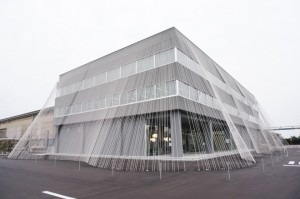For those times when need your own space after a major emergency, you don’t need luxury to get the job done.
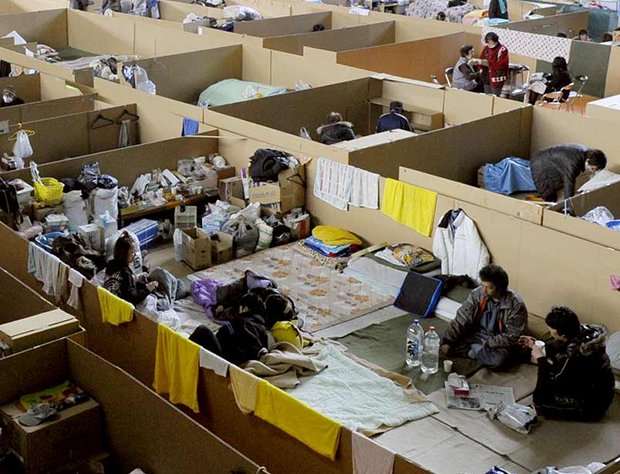
World Space agrees and that’s why they have come up with the Sleep Box, a new cardboard “house” with a door and two small windows, in which a refugee can “reside” until they get new permanent dwellings.
Resembling a kind of dog kennel meets oversized cockroach trap, the Sleep Box is made from reinforced cardboard that is light, easy to assemble (and de-assemble) in around 15 minutes, and also heat resistant and sound-proof.
In the winter apparently just your body heat is enough to keep it warm; no heaters required (just as well, with the flammable materials) — so it’s kind of like a static sleeping bag (not a coffin, I know you were thinking it).
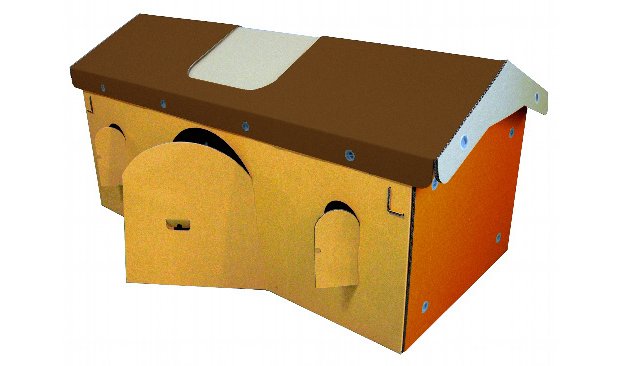
One house measures 208 x 90 x 96cm, designed to fit just one adult when lying down. Lighting can be added inside as an optional extra.
Privacy is a serious issue for refugees. Evacuation centers place basic needs first and things like privacy low on the list. After the Tohoku quake, many architects and designers have created prototypes for simple shelters that can provide some relief in terms of privacy and integrity to evacuees.
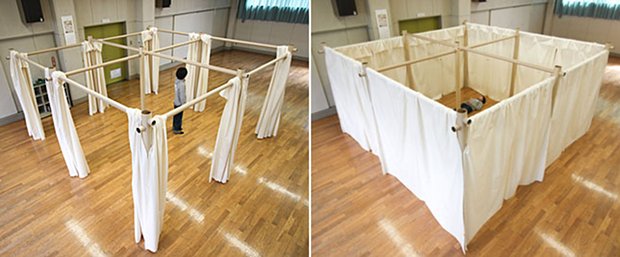
Shigeru Ban made some nice-looking partitions kits out of paper. One bizarrer idea was the Noah, a kind of sphere shape that looked more like a deep sea diving vessel.
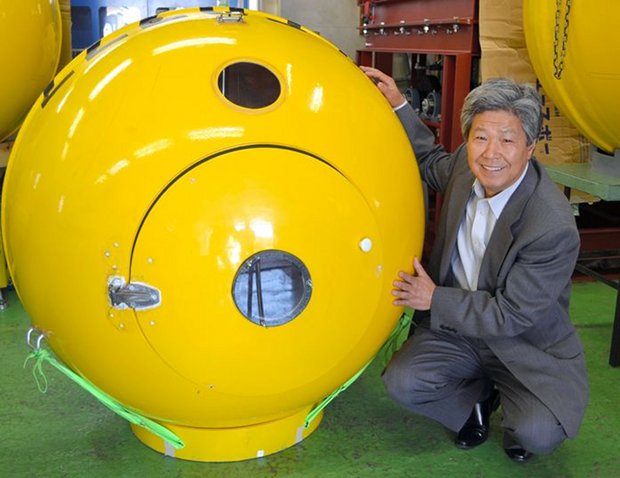
These kinds of innovations could literally save lives. Apparently 50% of the deaths at evacuation centers after the Tohoku disaster have been due to fatigue. Comfortable surroundings undoubtedly contributes to this.
The Sleep Box could be stored at home and is very much in the Compact Japan mode, the land of the capsule hotel, one room apartments and so on. Heck, with the local apartments being what they are, sometimes it can feel like you are already living in one to start with. Certainly the shacks that enterprising homeless guys build in parks are already a bit similar. To some British readers, the Sleep Box might recall a kind of low-fi Anderson Shelter, the bomb shelters families used to give themselves protection during the Blitz.
World Space are ambitious, expecting to ship 100,000 products in their first year. The cost is perhaps surprisingly high, though, at 14,500 JYP (nearly $200).
